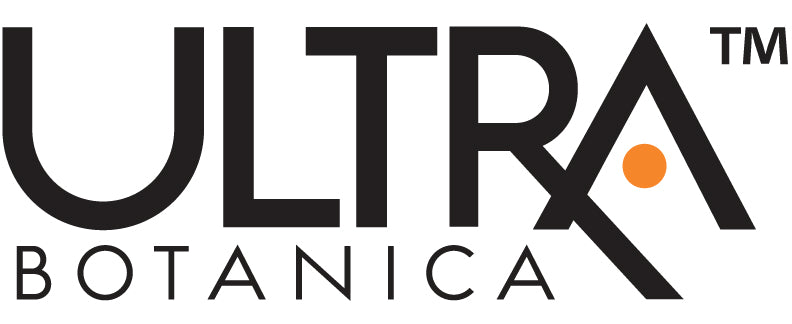That little moment of forgetfulness happens to everyone—you walk into a room and forget why, or a name that was just on the tip of your tongue slips away.
It’s frustrating, sometimes worrying, and can lead you to explore natural options such as curcumin for brain health to keep your mind sharp. A search for mental clarity often comes from concerns about mild cognitive impairment and the like. Or even just an effort to keep up with the younger people in your life.
For thousands of years, turmeric has been valued for its health benefits, but modern research shows its active compound, curcumin—just 3% of the turmeric root by weight—may be especially powerful.
Studies suggest curcumin for brain health could help support memory, focus, and long-term cognitive function while potentially reducing the risk of Alzheimer’s disease.
Curcumin vs. Turmeric -- Not the Same Thing!
Let's get one thing straight from the start; turmeric and curcumin are not the same thing. People often use the names interchangeably, but they're very different. Imagine an orange; turmeric is like the whole orange, peel and all.
Curcumin is the potent vitamin C found inside the fruit, the active ingredient that gives the orange its famous health punch. The turmeric root itself contains only about 2 to 5 percent of active compounds called curcuminoids.
Within this group, curcumin for brain health is the most abundant and most studied for its brain health benefits.
The other two major curcuminoids are demethoxycurcumin and bisdemethoxycurcumin, which also contribute to the overall effects of a full-spectrum turmeric extract.
So, if you're just sprinkling some turmeric on your food, you're not getting very much curcumin -- certainly not enough for a significant therapeutic effect as you might hope for curcumin for brain health.
That's why curcumin supplements with concentrated curcumin extract are so popular. They provide a much more powerful dose of curcumin for brain health than you could ever get from simply eating the turmeric spice.
The history of turmeric is rich. It's been a cornerstone of Ayurvedic medicine in India for centuries. Healers used it for everything from skin problems to digestive issues.
They knew it had powerful properties but did not know about the specific molecular mechanisms such as curcumin for brain health; they just knew the whole root worked.
Today, science allows us to isolate this amazing compound and study how it directly impacts our bodies and especially protecting our brains and preventing cognitive decline.

The Big Bioavailability Problem
There's one big catch with curcumin: your body has a hard time absorbing it, known medically as poor bioavailability. When you swallow plain curcumin, most of it gets metabolized by your liver and intestines before it can reach your bloodstream or arrive at your brain.
What little does get into your blood is often eliminated very quickly. This means it never gets a chance to travel to the parts of your body that may especially need it, like curcumin for brain health.
Scientists have spent a lot of time trying to solve this issue because they recognize the potential health benefits of curcumin. The challenge has been figuring out how to create a bioavailable form of curcumin that gets into our systems effectively.
Luckily, we now have bioavailable solutions which we will explore shortly. First, let's look at why your brain needs curcumin for brain health support in the first place.
The Brain's Silent Battle
Deep inside your head, a constant battle is being fought that affects how you think, feel, and remember. This battle involves two key enemies of brain health: inflammation and oxidative stress.
Think of them as tiny troublemakers that can cause big problems over time, speeding up the aging process in your brain. When inflammation occurs in your brain, it's called neuroinflammation.
Imagine a small, slow-burning fire in your brain's tissues, smoldering for years without you knowing it. Chronic, low-grade inflammation can damage brain cells, disrupt communication between them, and is linked to brain fog, fatigue, and even serious cognitive impairment.
This silent process involves the brain's immune cells, primarily the microglia. While essential for clearing debris, when chronically activated, they can release a cascade of inflammatory substances.
Persistent inflammation plays a critical role in the development of many neurocognitive disorders, so needless to say, it is not your friend.
Oxidative Stress: Your Brain's Rust
Then you have oxidative stress, which is a bit easier to picture. Think about what happens when you cut an apple and leave it on the counter; it turns brown. The same oxidation happens inside our bodies, triggered by unstable molecules known as free radicals.
Free radicals are like tiny, out-of-control bumper cars bouncing around inside your cells, damaging everything they touch, including your DNA, proteins, and cell membranes. Our bodies have a natural antioxidant defense system to clean them up.
But factors such as pollution, stress, insomnia, and a poor diet can create more free radicals than we can handle. The brain is especially vulnerable to this kind of damage.

Curcumin's Firefighting Power
This is where curcumin really shines. It works on a deep, cellular level to cool down that silent fire in your brain. It doesn't just mask the symptoms; it targets some of the root causes.
One of the main ways it works is by blocking a molecule called NF-kB. Think of NF-kB as a master switch that turns on your body's inflammatory response.
Curcumin has been shown in studies to inhibit this signaling pathway, helping to keep that master inflammation switch in the "off" position. A systematic review confirms this and highlights curcumin’s ability to influence pathways tied to neurodegeneration.
Curcumin's ability to modulate inflammatory pathways can have a profound effect on long-term brain health. The critical question has always been whether curcumin could even get into the brain.
The brain is protected by the blood-brain barrier, a highly selective filter. But studies show that certain curcumin formulations can cross this barrier—meaning it can get right to where it's needed -- in the brain.
A Powerful Antioxidant Shield
Curcumin's benefits don't stop with this; it's also a powerhouse antioxidant that helps shield your brain from that "rusting" process caused by free radicals.
The molecular mechanisms behind this are twofold, making curcumin a versatile defender of cognitive health and potentially also a hoped-for preventive for cognitive decline.
First, its unique chemical structure allows it to directly neutralize several different types of free radicals. Curcumin essentially sacrifices itself to protect your precious brain cells from damage. It's like a bodyguard taking a hit for you.
But curcumin has another, even more impressive trick. It also boosts your body's own natural antioxidant defense systems.
It increases the activity of powerful antioxidant enzymes such as glutathione and superoxide dismutase, the master antioxidants your body uses to protect itself.
So, curcumin isn't just helping with cleanup; it's upgrading your whole security system so your brain can better protect itself!

Curcumin for Brain Health, Memory, and Mood
It is great to know that curcumin for brain health is fighting these invisible battles, but can it help with things we can feel, such as memory, focus, and mental sharpness?
A growing body of research, including a notable clinical trial, says yes. The answer to sharper cognition can be supported with curcumin for brain health. One of the most exciting pieces of research on curcumin for brain health came from UCLA.
Beyond individual trials, a systematic review of the research also supports the conclusion that curcumin improves cognitive performance, especially memory and attention, in aging adults.
In the double-blind, randomized controlled trial, participants took a highly absorbable form of curcumin for 18 months. The results from this study were quite remarkable, showing that curcumin can make a real difference.
The group taking curcumin saw significant improvements in memory and attention compared to the placebo group. Even more interesting, positron emission tomography (PET) scans of their brains showed something quite incredible.
There were significantly lower levels of amyloid and tau protein signals in key brain regions that regulate memory and mood, specifically the amygdala and hypothalamus.
These protein tangles and plaques are the hallmarks of mild cognitive impairment and are strongly associated with Alzheimer's disease. The PET scan visualizes both brain amyloid plaques and tau protein aggregates.
According to the study, curcumin appeared to support brain health, keeping it cleaner and healthier, while also preventing cognitive decline through reduced aβ (amyloid beta) buildup.
Participants who took curcumin also reported improvements in mood, which makes sense since the brain regions responsible for memory are closely tied to those that regulate emotions.
Thus, curcumin may offer mood-stabilizing effects.

Connecting the Dots for Better Focus
How does reducing oxidative stress lead to better focus? Think of your brain like a busy city. For information to travel quickly and efficiently, the roads need to be clear.
Oxidative damage is like constant traffic jams and potholes, slowing everything down. When curcumin helps clear out that "road debris," communication between your brain cells becomes faster and more efficient.
Clear signal flow in the brain translates to better focus, faster thinking, and less fog. Curcumin’s protective benefits help maintain this clarity, keeping your brain working like you want it to.
This is especially important for healthy older adults looking to maintain their cognitive performance and prevent neurocognitive decline.
Growing Your Brain with BDNF
For a long time, scientists believed that we were born with all the brain cells we would ever have. We now know this is not true. Your brain has a remarkable ability to adapt, grow, and reorganize itself throughout your life, a process called neuroplasticity.
A key player in this process is a protein called Brain-Derived Neurotrophic Factor, or BDNF. Think of this neurotrophic factor as a kind of fertilizer for your brain.
It supports the survival of existing neurons and encourages the growth of new ones, particularly in the hippocampus, the brain's memory center. High levels of BDNF are linked to better learning, memory, and overall cognitive function.
Low levels of BDNF are associated with brain fog, depression, and a higher risk of neurodegenerative diseases such as Alzheimer's disease and Parkinson's disease.
However, there's still a lot of debate over just how serum biomarkers line up with curcumin for brain health. Several studies have found that curcumin can significantly increase levels of brain-derived neurotrophic factor.
By boosting this crucial growth factor, curcumin can help your brain stay more flexible and resilient.
It helps your brain repair itself and build new pathways, which supports your ability to learn new things, form lasting memories, and keep sharp cognitive performance as you get older.
Boosting Blood Flow to the Brain
Your brain is incredibly demanding. Although it only makes up about 2% of your body weight, it uses about 20% of your body's total oxygen and calories.
To get all that fuel, it needs a constant, healthy supply of blood, making good circulation critical for optimal brain function.
When blood flow is poor, your brain cells get starved of the oxygen and nutrients they need to work properly. This can lead to cognitive decline and increase the risk for a wide range of neurological issues. Curcumin can help here, too.
Curcumin has been shown to improve the health and function of the endothelium, the thin membrane that lines the inside of all your blood vessels. A healthy endothelium helps your blood vessels relax and widen as needed, letting more blood flow through.
Research has shown that taking curcumin can improve endothelial function as much as exercise can. In fact, controlled studies consistently report that curcumin improves circulation and endothelial flexibility, which benefits oxygen delivery to the brain.
In one controlled trial on postmenopausal women, one group exercised, one took curcumin, and one did nothing. After eight weeks, both the exercise group and the curcumin group showed equal improvements in endothelial function.
Trial results suggest that curcumin can support your cardiovascular system in a way that directly benefits blood flow to your brain, which is vital for maintaining cognitive health.

Protisorb™: Advanced Curcumin Delivery That Makes the Difference
Despite all these promising benefits, curcumin’s clinical use has previously been limited by its low natural bioavailability.
Standard turmeric extracts and curcumin extracts are poorly absorbed, rapidly metabolized, and eliminated before they can reach the brain in meaningful amounts.
That’s where Protisorb™ changes the equation.
What Is Protisorb™?
Protisorb™ is a patented delivery system that binds curcumin to a carefully selected protein scaffold—whey protein, brown rice protein, and NAC—to:
-
Keep curcumin in a molecularly available form
-
Enable direct absorption into the bloodstream
-
Avoid gut irritation linked to black pepper (piperine)
-
Deliver curcumin where it's needed -- inside your cells.
Unlike liposomal or piperine-based systems, Protisorb™ is designed for cellular delivery with metabolic support, making it ideal for neurological and cognitive health applications.
How to Choose a Quality Curcumin Supplement
Walking into a health food store or browsing online can be overwhelming. There are hundreds of different curcumin supplements to choose from. Knowing which one is worth your money and will work is easier than you think if you know what to look for.
First, ignore the marketing hype on the front of the bottle and turn it around to look at the "Supplement Facts" panel.
You want to see that the product is standardized. Standardization means the manufacturer has ensured a consistent, guaranteed amount of the active compound in every dose, which is often confirmed through a randomized control process.
Look for a product that is standardized to contain 95% curcuminoids; this is the gold standard. As we just discussed, bioavailability is everything.
Finally, look for proof of quality and purity. The best brands will send their products to an independent, third-party lab for testing. This verifies that the product contains what the label says and checks for harmful contaminants.
A transparent company will make this information, often a Certificate of Analysis (COA), easy to find on their website.

Finding Your Dose and Staying Safe
So, you've found a high-quality, bioavailable curcumin supplement. Now how much should you take?
There is no single, one-size-fits-all answer, as the ideal dose can depend on your age, your health goals, other medications and conditions, and the specific formulation you choose.
Most clinical studies examining cognitive benefits have used doses ranging from 500 mg to 2,000 mg of curcuminoids per day, usually split into two doses.
A good approach is to start on the low end of that range and see how your body feels. You can slowly increase the dose if needed but always follow the dosage instructions on the product label.
Curcumin is generally considered very safe, even at high doses, and is recognized as GRAS (Generally Recognized As Safe) by the FDA.
Curcumin can have a blood-thinning effect, so if you take prescription blood thinners such as warfarin, you should talk to your doctor before adding curcumin.
You should also be cautious if you're pregnant or breastfeeding, as there isn't enough research to confirm curcumin's safety in these groups.
A conversation with your healthcare provider is always a good idea before starting any new supplement, especially if you have existing health conditions or are taking other medications.
Conclusion
Taking care of your brain is one of the most important things you can do for your long-term health and wellbeing. We all want to feel sharp, focused, and mentally vibrant for our entire lives.
The science of natural compounds is giving us exciting new tools to help us achieve that goal. Evidence supporting the use of curcumin for brain health is strong and growing, offering a multi-pronged approach to protecting our most valuable asset.
By balancing chronic inflammation, fighting oxidative stress, boosting BDNF levels, and improving blood flow, curcumin supports fundamental processes that protect brain health.
Remember to choose a high-quality curcumin supplement with potent Protisorb™ absorption technology, without good absorption you simply won't reap the benefits.

Frequently Asked Questions
1. What value is curcumin for brain health?
Curcumin supports brain health by protecting against oxidative stress, improving memory and focus, and boosting mood-regulating brain chemicals such as BDNF and serotonin.
2. Can curcumin for brain health improve memory and cognitive function?
Yes, studies have shown that curcumin may enhance memory, attention, and overall cognitive performance—especially in older adults. It may also help reduce the buildup of beta-amyloid plaques and tau proteins linked to Alzheimer’s disease.
3. Is turmeric the same as curcumin?
Not really. Turmeric is the whole root of the plant, while curcumin is its most active compound. Turmeric contains only about 2–5% curcumin by weight, so concentrated curcumin for brain health is much more effective.
4. How long does it take for curcumin to work for memory or brain fog?
Some people notice improved clarity and mood within a few days, but it depends on dosage and delivery method. Your best results from any supplement will come from longer term use, such as after 90 days.
5. Can curcumin for brain health help with anxiety or depression?
Yes. Research shows curcumin can help modulate serotonin and dopamine levels, balance inflammation, and increase BDNF—all of which may help ease symptoms of anxiety and depression.
6. Does curcumin for brain health cross the blood-brain barrier?
Yes—curcumin for brain health can cross the blood-brain barrier, but only when it’s in a highly bioavailable form.
Standard curcumin is poorly absorbed, but delivery systems such as Protisorb™ allow curcumin to enter the bloodstream and cross into brain tissue in a molecularly active form.





Share:
Blue Zone Lifestyle – Is a Blue Zone Lifestyle Your Ticket to Longevity?
Boost Your Day with These High Protein Breakfast Ideas